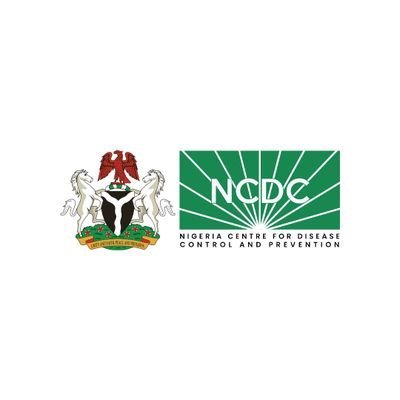Strengthening Nigeria’s public health systems resilience
By Racheal Abujah, News Agency of Nigeria (NAN)
Building resilient public health systems is crucial for effective response to emergencies and preparing for future challenges.
Thirty-seven years old, Mr Anthony Yohanna, a plumber, lives at Iche near Kagarko, a town on Abuja-Kaduna highway.
Like many families in the area, his family heavily relies on subsistence farming for livelihood.
Because they live in a rural community, access to healthcare services is a major challenge for Yohanna and his family members.
The COVID-19 pandemic further exposed the gaps in the public health system in his community.
When the first cases of COVID-19 were reported in Nigeria, he said his family quickly realized the potential impact it could have on their lives.
“We witnessed the panic and fear that gripped our community as rumours spread rapidly.
“With limited access to accurate information, we were unsure about the necessary precautions to take and the symptoms to watch out for,” he told the News Agency of Nigeria (NAN).
He said his family also witnessed the transformation of their local healthcare facility.
“Previously under-staffed and ill-equipped, the clinic received additional funding and resources to enhance its capacity to handle some emergencies.
“The availability of testing kits, personal protective equipment, and medical supplies boosted the confidence of healthcare workers in their ability to respond effectively,” he said.
“They also brought a sigh of relief among the members of the community”, he said.
However, as the pandemic unfolded, he said he nearly faced a tragedy when his eldest daughter contracted COVID-19.
“Thanks to the improved healthcare infrastructure, she received timely medical attention and support, ultimately recovering from the illness,” he narrated.
The experience highlights the importance of a robust and resilient public health system in safeguarding the well-being of individuals and families.
In acknowledgement of the urgency of the situation, the Nigerian government, in collaboration with international partners, implemented various measures to strengthen emergency preparedness and response.
As part of the mechanisms, the government established dedicated COVID-19 treatment centres, trained healthcare workers, and set up an extensive public awareness campaign.
These efforts aimed to ensure that accurate information reaches even the most remote communities, like the one the Yohanna’s.
One key component of the people-centred approach was the deployment of community health workers to educate and support rural communities.
Executive Director, NPHCDA, Dr Faisal Shuaib said that these health workers became the first line of defence against the virus, visiting households, distributing educational materials, and providing guidance on preventive measures.
Shuaib said that it was a lifeline to reliable information and a source of reassurance during uncertain times.
Through the lens of Yohanna’s family, it becomes evident that a people-centred approach is critical in strengthening emergency preparedness and response.
Dr Opeyemi Adeosun, Program Manager, HERFON, said that when communities are engaged, educated, and empowered, they become active participants in mitigating the impact of emergencies.
Adeosun said by addressing specific needs of individuals and families, public health systems can build resilience at the grassroots and ensure that no one is left behind.
“Moving forward, Nigeria must continue its efforts to prioritise a people-centred approach to public health.
“It must continue to invest in healthcare infrastructure, expanding access to essential services, and empowering local communities with knowledge are essential steps.
“By doing so, Nigeria can improve its readiness to respond to emergencies, protect its citizens, and build a resilient public health system for a more secure future,” he said.
According to experts, taking a people-centred approach is crucial for strengthening emergency preparedness and response in Nigeria’s public health systems.
The Head, Communications Division, Nigeria Centre for Disease and Prevention Control, Dr Yahya Disu, said it was important to prioritise the needs and well-being of the population in building resilient health systems.
One aspect highlighted by Disu was the importance of community engagement.
“By involving communities in emergency preparedness and response efforts, local knowledge, resources, and capacities can be leveraged effectively.
“This approach empowers individuals and communities to take ownership of their own health and well-being, leading to more sustainable and resilient systems,” he said.
Mr Hamzat Lawal, Chief Executive Officer (CEO) of CODE, at the Coronavirus (COVID-19), Transparency and Accountability Project,(CTAP), Health Summit, also stressed the significance of investing in capacity building of healthcare workers.
“Adequately trained and equipped healthcare personnel are essential for effective emergency response.
“By providing training, support, and incentives to healthcare workers, they can be better prepared to handle emergencies and provide quality care to those in need,” he said.
Lawal also said there is the need for a multi-sector approach to building resilience health systems.
He advocates collaboration between different sectors such as health, education, transportat, and communication to ensure a holistic response to emergencies.
“This approach fosters coordination, information sharing, and resource pooling, thereby strengthening the overall emergency response capacity of the country,” he told NAN.
Dr Biobele Davidson, Strengthening Health Systems Lead at BudgIT, also raised concerns about the equitable distribution of resources and services.
Davidson highlighted the need to address underlying social determinants of health, such as poverty, gender inequality, and lack of access to basic services in the country.
“By addressing these disparities, public health systems can become more resilient and responsive to emergencies,” she said.
She advanced that people-centred approach was essential in strengthening emergency preparedness and response in the country.
According to health experts, by empowering communities, investing in healthcare workers, promoting multi-sector collaboration, and addressing social determinants of health, resilient public health systems can be built to effectively respond to emergencies and protect the well-being of Nigerians. (NANFeatures)
**If used please credit the writer and News Agency of Nigeria
Published By
- Agriculture and Environment Desk Controller/Website Content Manager.








